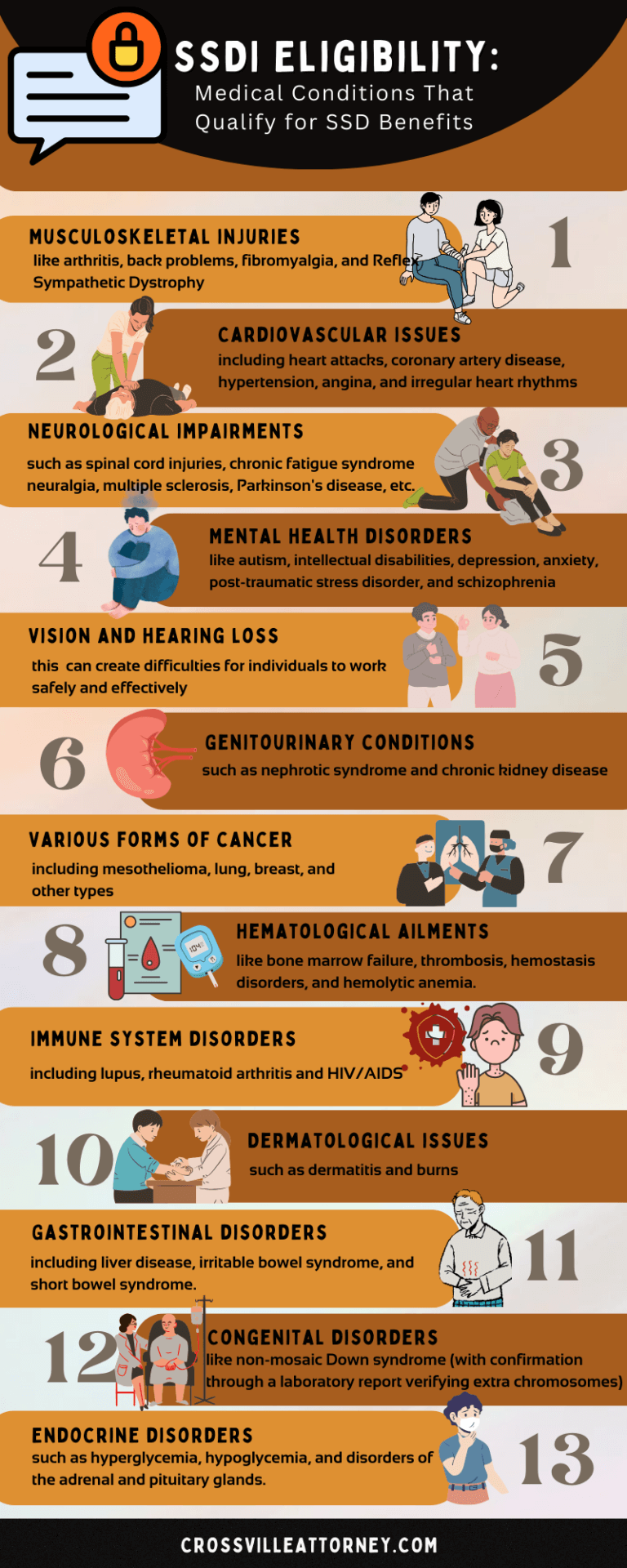Securing Social Security Disability Insurance (SSDI) involves meeting specific medical criteria. Eligibility hinges on having a severe, long-term medical condition that significantly impedes your ability to work. Common qualifying conditions include musculoskeletal disorders, such as arthritis or spinal injuries, impacting mobility and functionality.
Serious cardiovascular conditions, such as heart failure or coronary artery disease, are also considered, given their substantial impact on daily activities. Respiratory disorders like chronic obstructive pulmonary disease (COPD) or severe asthma are qualifiers, reflecting the impairment they pose to breathing and overall health. Neurological disorders, including epilepsy, multiple sclerosis, and Parkinson’s disease, are recognized as debilitating conditions.
Mental health issues like depression, anxiety disorders, and schizophrenia are considered, provided they result in marked functional limitations. Cancer patients undergoing rigorous treatments or those with advanced stages of the disease may qualify. Immune system disorders, such as HIV/AIDS, also meet the eligibility criteria due to their chronic and disabling nature.
Ultimately, eligibility for SSDI depends on the severity of the medical condition and its impact on one’s ability to work, emphasizing the importance of a comprehensive medical assessment when applying for disability benefits.

Infographic Source: https://crossvilleattorney.com/type-of-injuries-social-security-consider/
